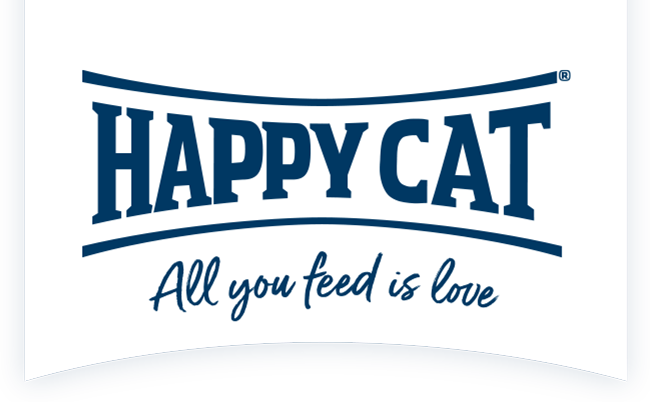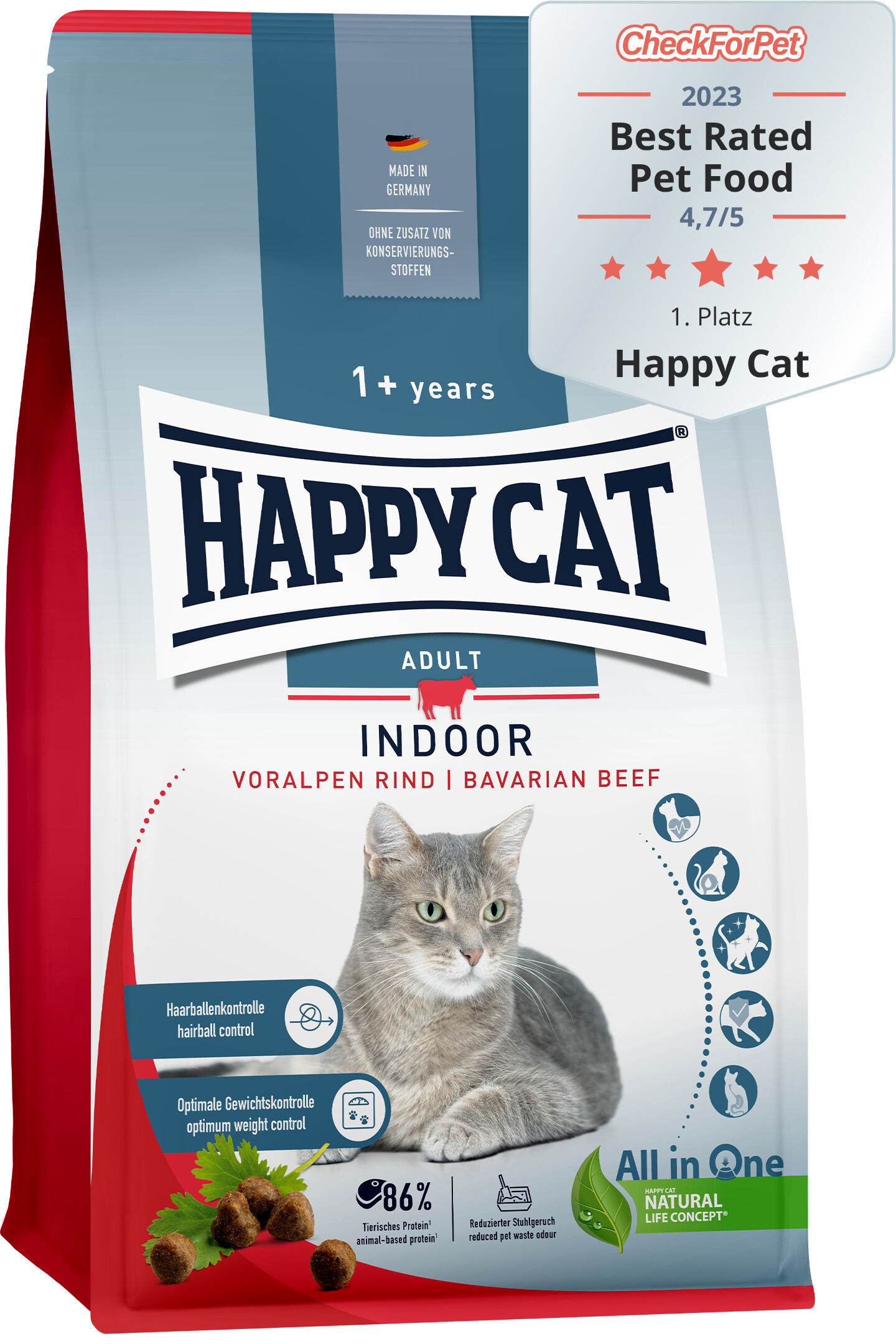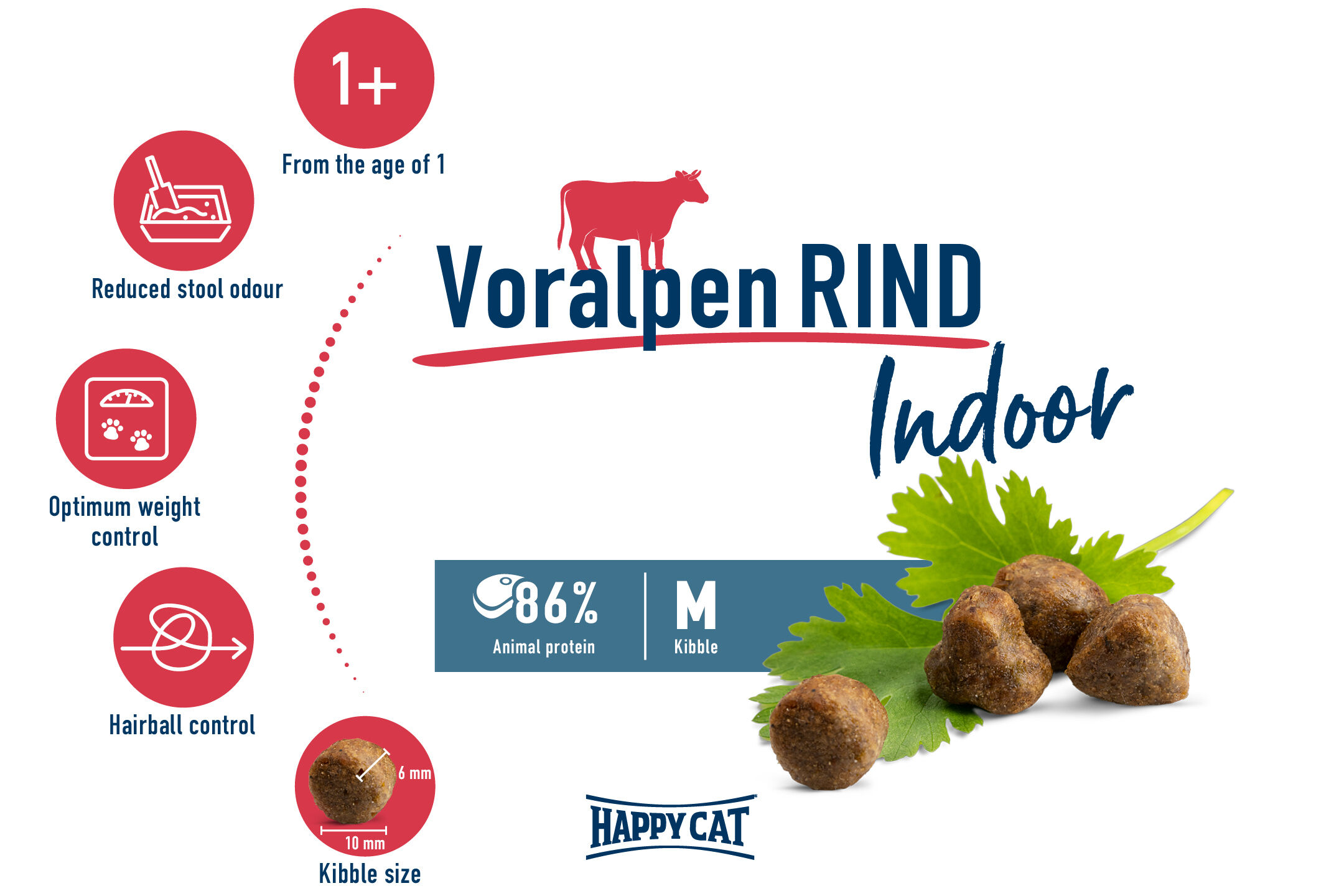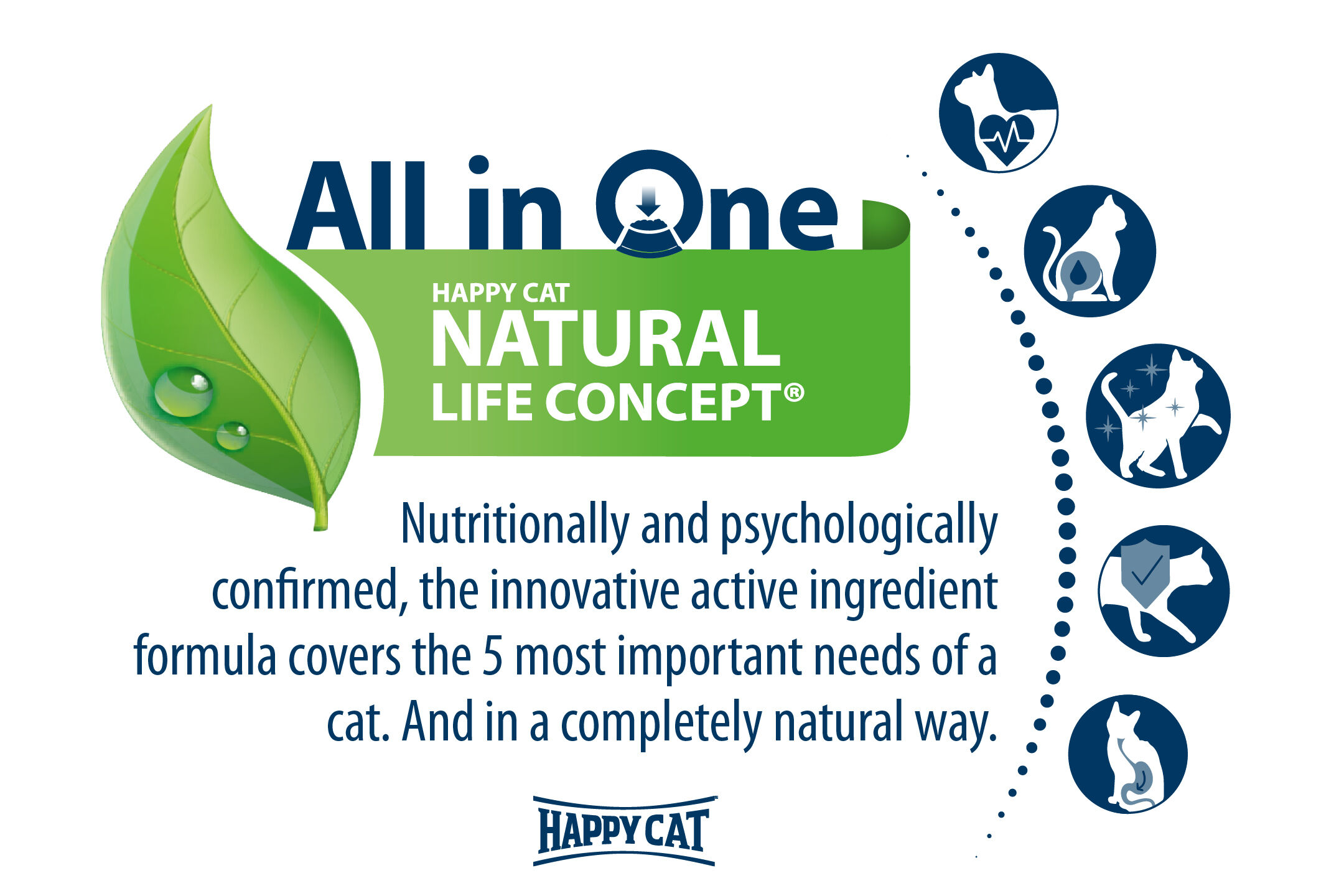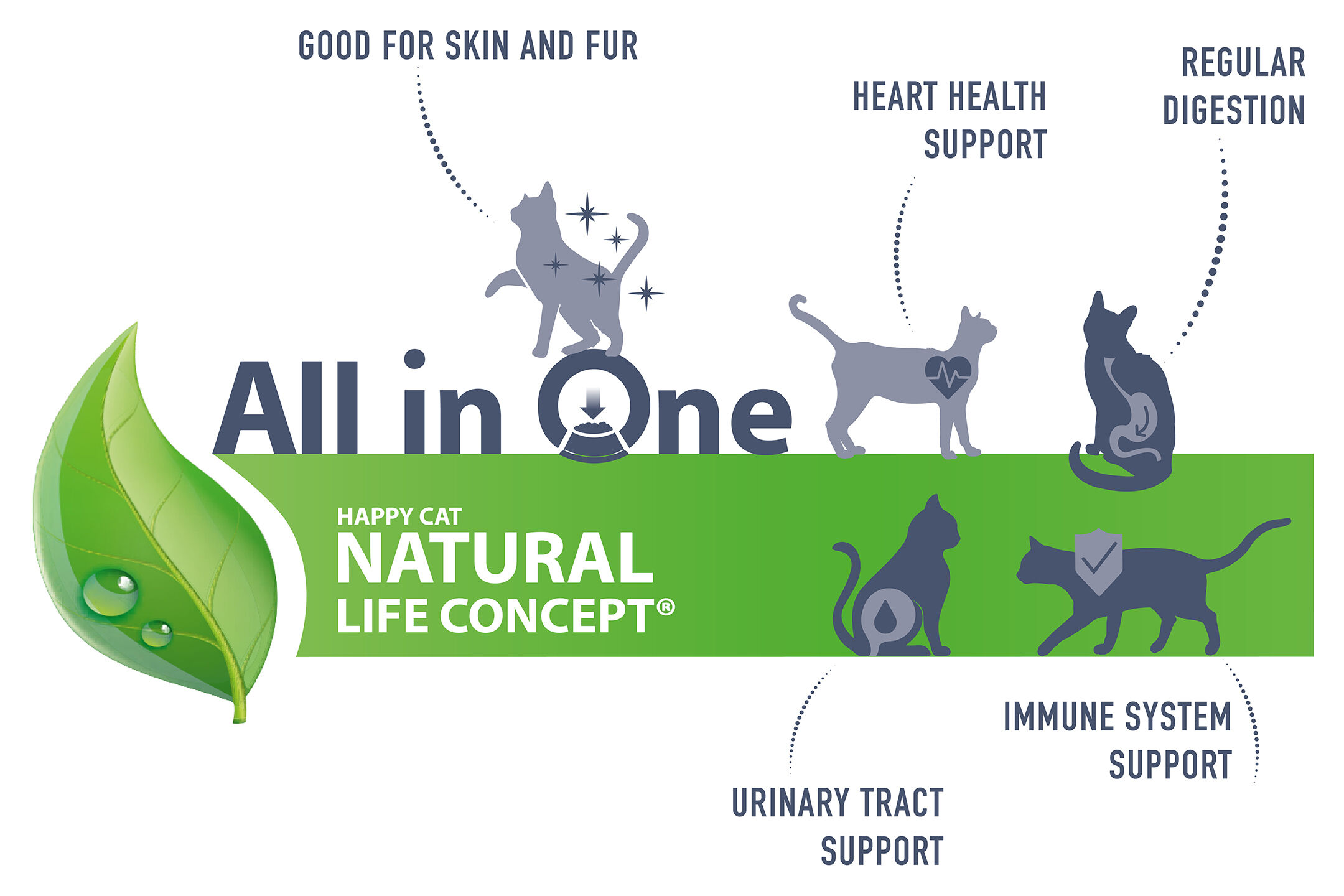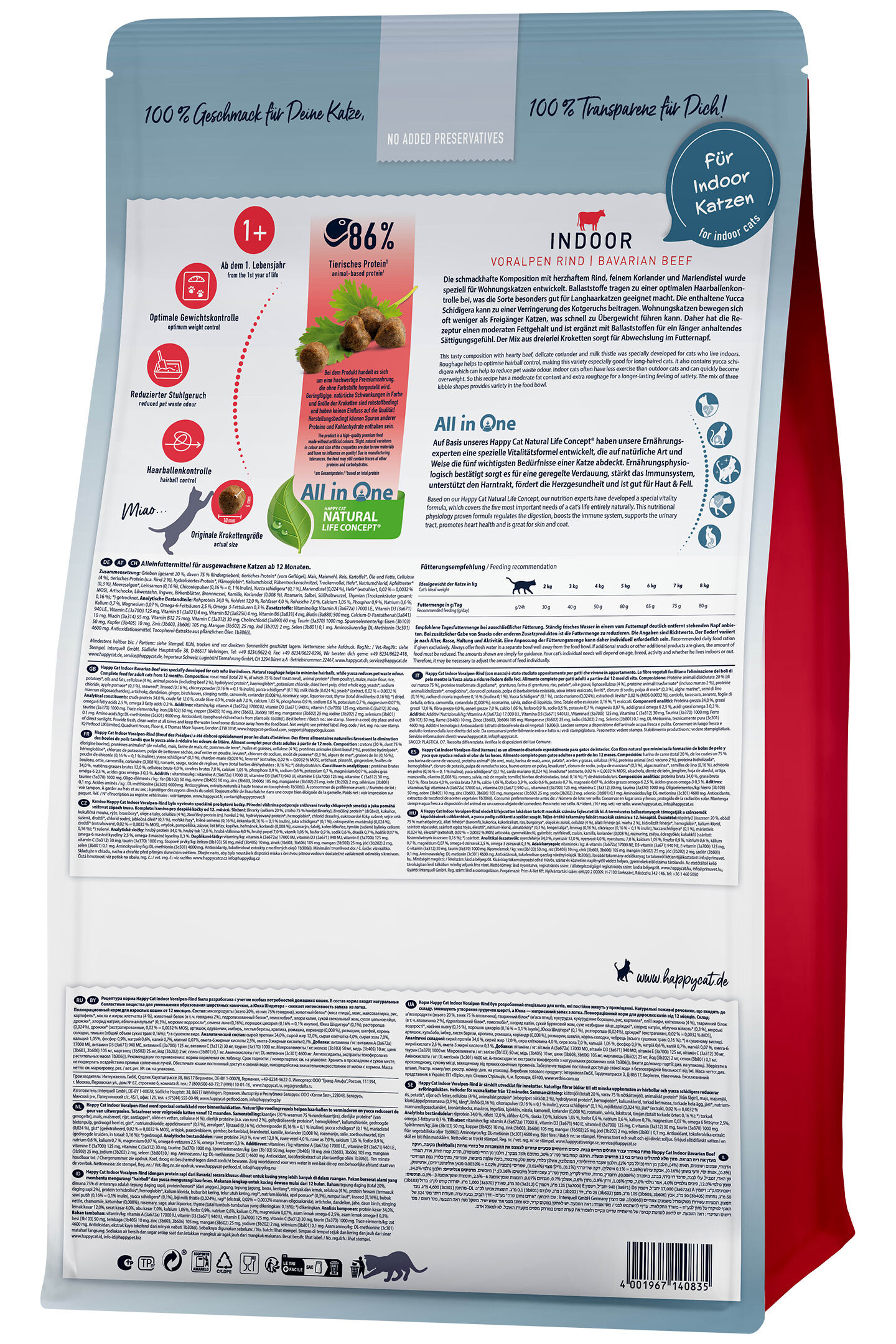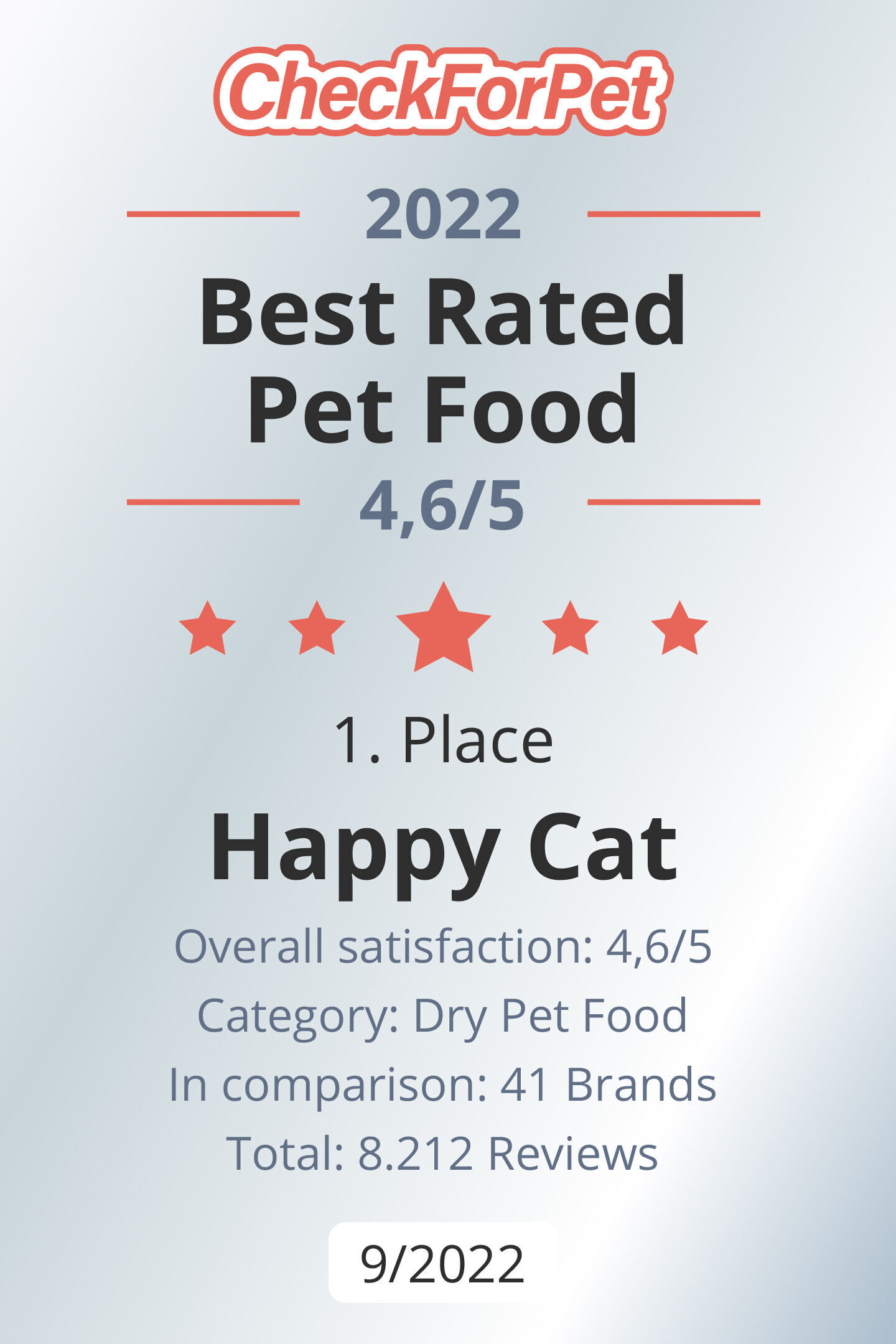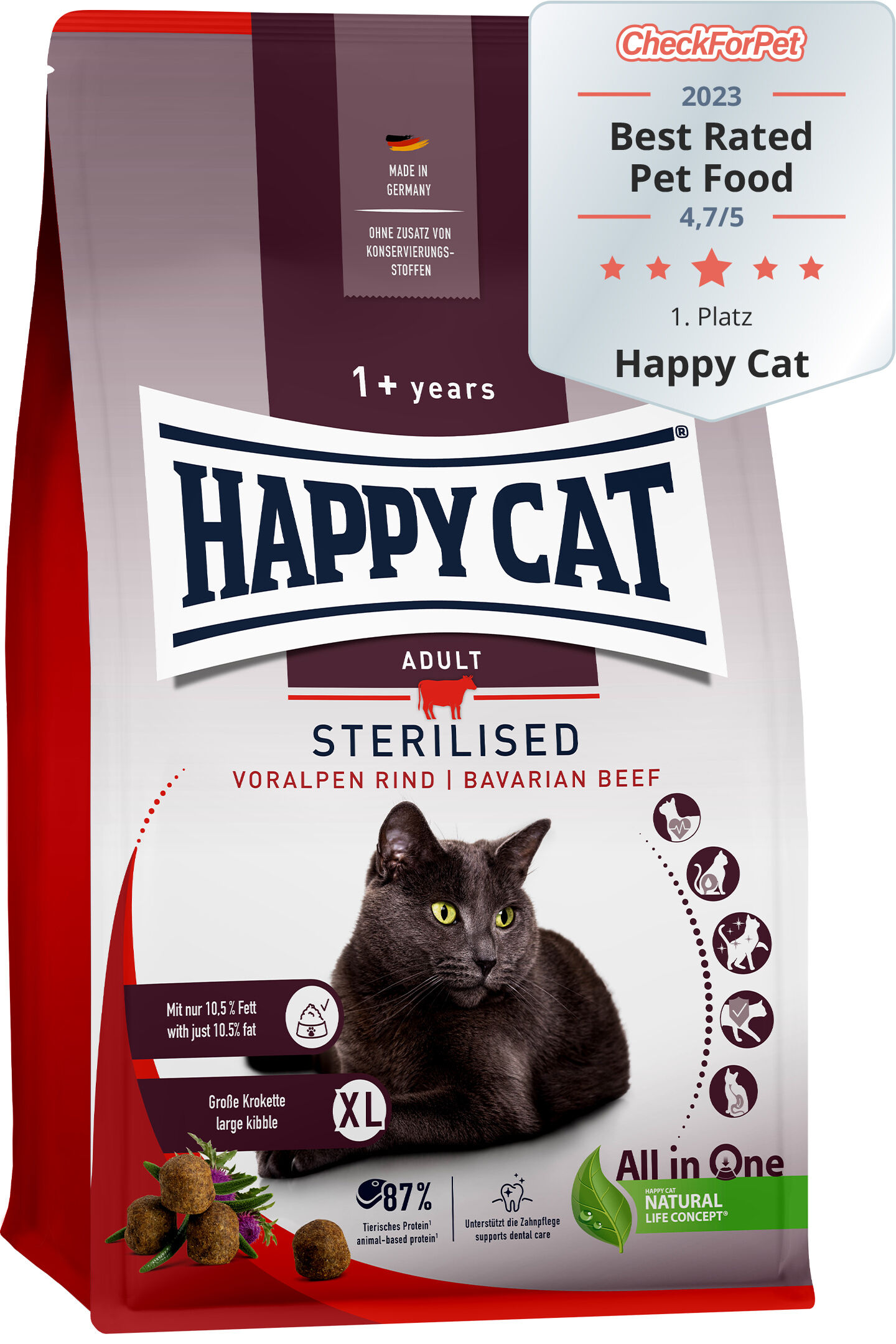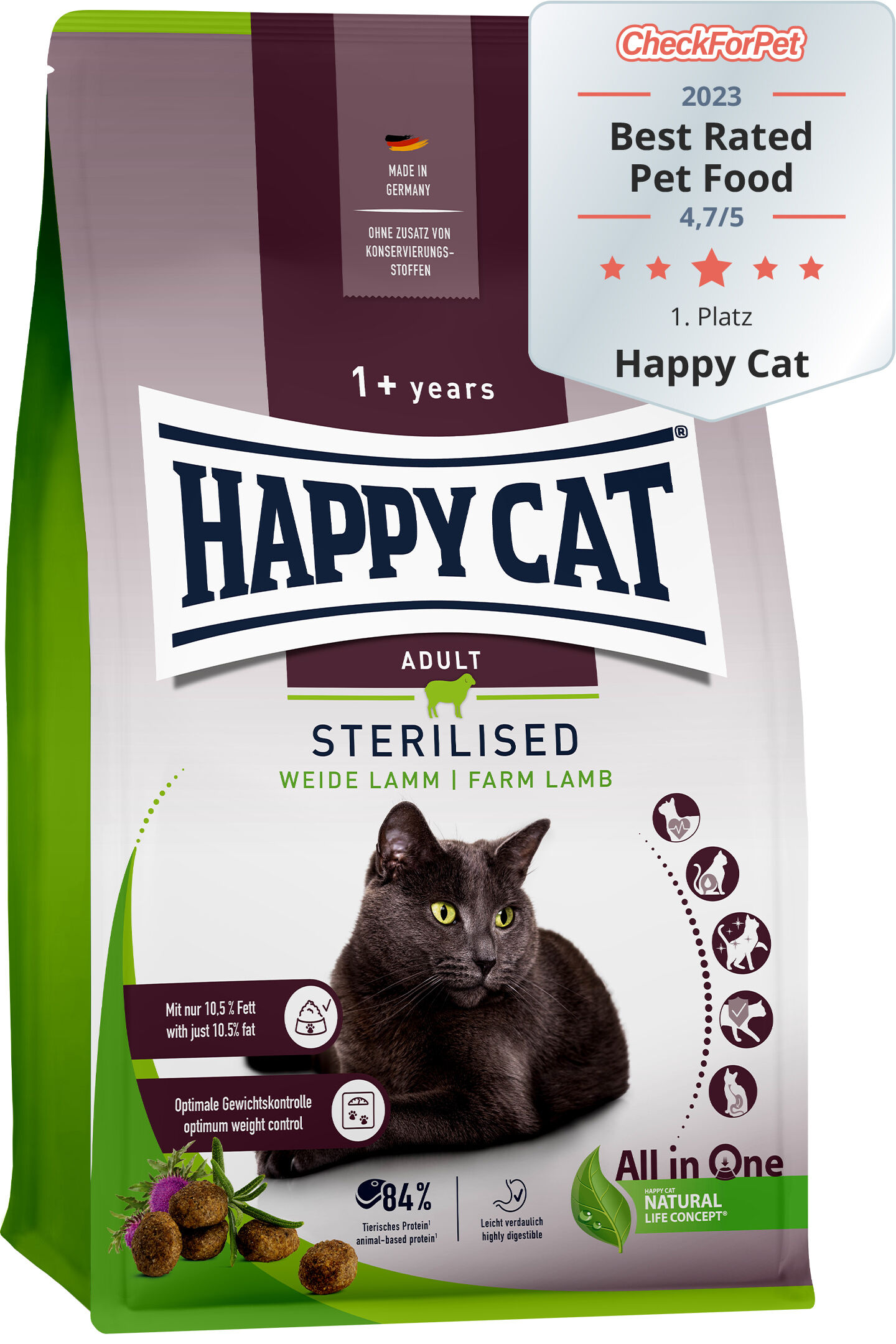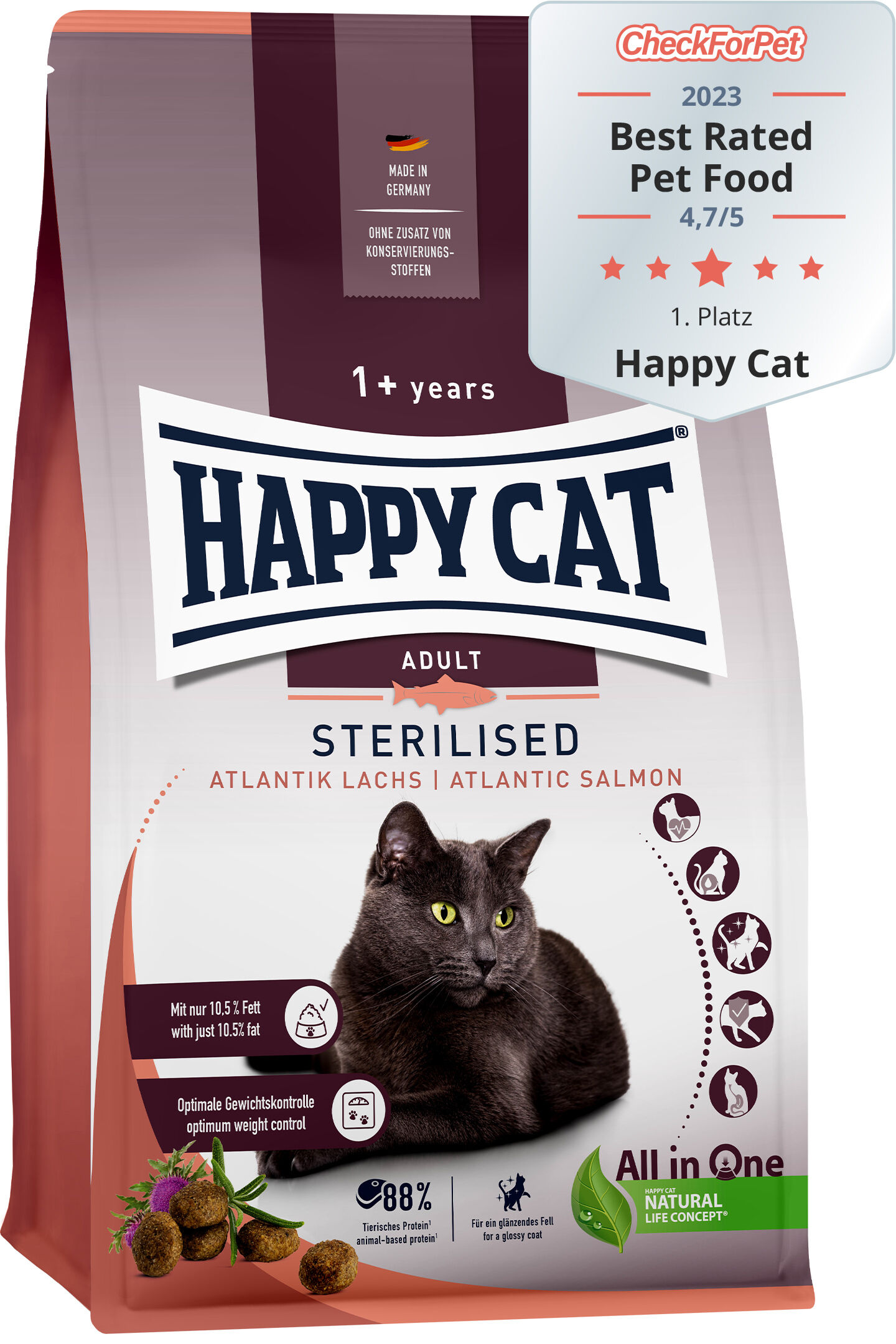Indoor Adult Bavarian Beef
- Optimal weight control
- For house cats
- Less stool odour
- Hairball control
Dry food with moderate fat content for indoor cats
- after the 1st birthday
- reduces stool odour
- optimal weight control
- hairball control
The exquisite composition of hearty beef, fine coriander and milk thistle has been specially developed to meet the nutritional requirements of indoor cats. As indoor cats usually move less than their outdoor counterparts, this can quickly lead to overweight with the same energy intake. That's why our indoor variety Voralpenrind contains only 12 % fat. Thanks to the satiating dietary fibre, your indoor cat will still be full for a long time. Furthermore, the Yucca Schidigera contained in the food can help to reduce the smell of faeces, which you will certainly welcome when cleaning the cat's litter tray.
Hairball control especially important for longhaired cats
Our dry food for indoor cats contains valuable fibre to help eliminate hairballs. Therefore, our Indoor Adult Pre-Alpine Beef is particularly suitable for longhaired cats. The mix of three medium sized kibble shapes also adds variety to your indoor cat's food bowl.
What is the difference between indoor and sterilised food?
Indoor cats generally get less exercise than outdoor cats and can easily gain weight from less activity with an everyday cat food. In neutered cats, the hormonal changes result in an increase in appetite, which can be as much as 25%. This means that both spayed and indoor cats need a food with a moderate fat content to maintain their physical constitution.
If you have a neutered indoor cat that is active to very active, you can fill its bowl with our indoor dry food. If, on the other hand, you have a quiet, less active indoor cat at home, we recommend our sterilised food.
However, the metabolism of your cat is also important. If the Indoor Adult Pre-Alpine Beef is too rich in fat (12%), you can switch to Sterilised Adult Pre-Alpine Beef with only 10.5% fat.
| Cat’s ideal weight in kg | Recommended feeding (g/day) |
| 2 | 30 |
| 3 | 40 |
| 4 | 50 |
| 5 | 60 |
| 6 | 65 |
| 7 | 75 |
| 8 | 80 |
Recommended daily food ration if given exclusively. Always offer fresh water in a separate bowl well away from the food bowl. If additional snacks or other additional products are given, the amount of food must be reduced. The amounts shown are simply for guidance. Your cat’s individual needs will depend on age, breed, activity and whether he lives indoors or out. Therefore, it may be necessary to adjust the amount of feed individually.
Meat meal (total 20 %, of which 75 % beef meat meal), animal protein* (from poultry), maize, maize flour, rice, potatoes*, oils and fats, cellulose (4 %), animal protein (including beef 2 %), hydrolysed protein*, haemoglobin*, potassium chloride, dried beet pulp, dried whole egg, yeasts*, sodium chloride, apple pomace* (0.3 %), seaweed*, linseed (0.16 %), chicory powder (0.16 % = 0.1 % inulin), yucca schidigera* (0.1 %), milk thistle (0.024 %), yeasts* (extract, 0.02 % = 0.0032 % mannan oligosaccharides), artichoke, dandelion, ginger, birch leaves, stinging nettle, camomile, coriander (0.008 %), rosemary, sage, liquorice root, thyme (total dried herbs: 0.16 %)
*) dried
Crude protein 34.0 %, crude fat 12.0 %, crude fibre 4.0 %, crude ash 7.0 %, calcium 1.05 %, phosphorus 0.9 %, sodium 0.6 %, potassium 0.7 %, magnesium 0.07 %, omega 6 fatty acids 2.5 %, omega 3 fatty acids 0.3 %
Vitamins/kg:
vitamin A (3a672a) 17000 IU, vitamin D3 (3a671) 940 IU, vitamin E (3a700i) 125 mg, vitamin C (3a312) 30 mg,
taurine (3a370) 1000 mg
Trace elements/kg:
iron (3b103) 50 mg, copper (3b405) 10 mg, zinc (3b603, 3b606) 105 mg, manganese (3b502) 25 mg, iodine (3b202) 2 mg, selenium (3b801)
0.1 mg
Amino acids/kg:
DL-methionine (3c301) 4600 mg
Antioxidant, tocopherol-rich extracts from plant oils 1b306(i)
